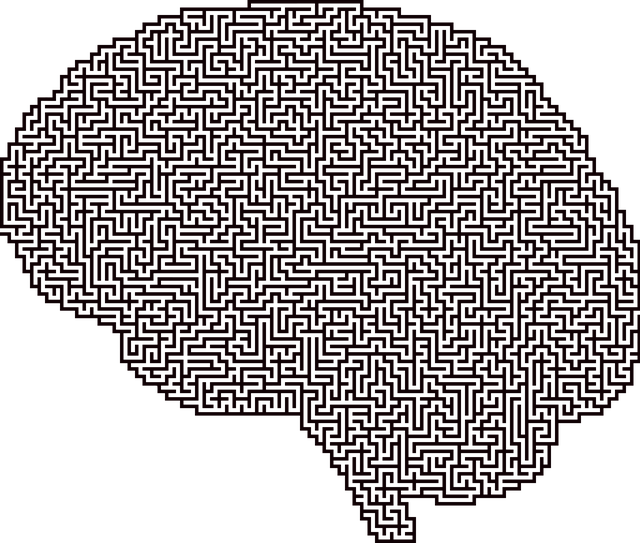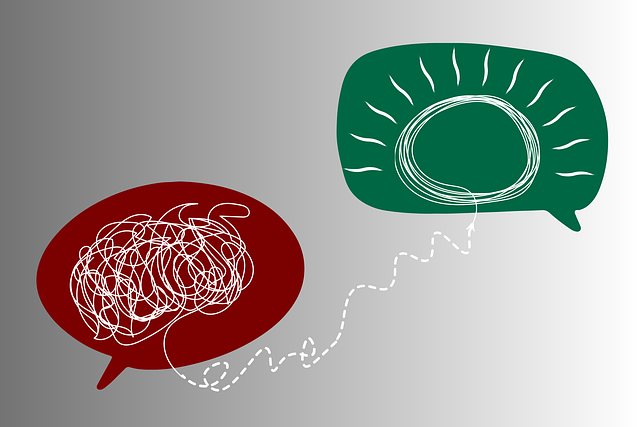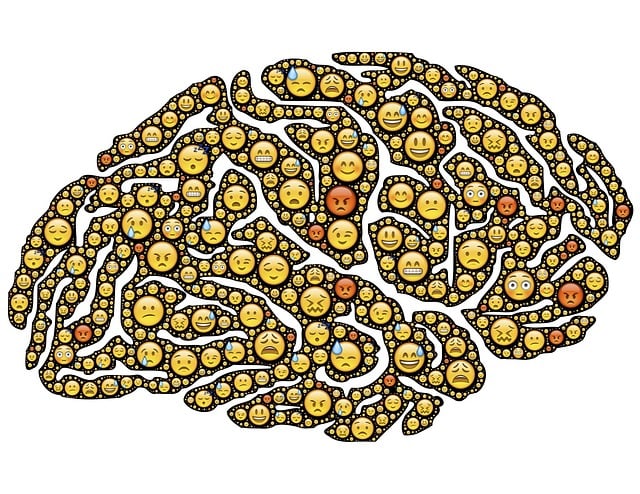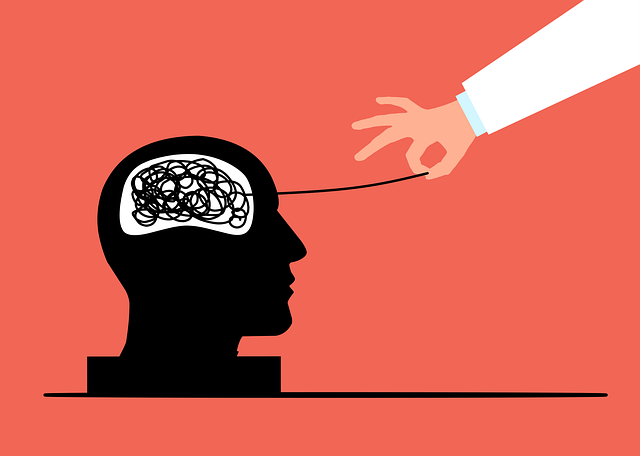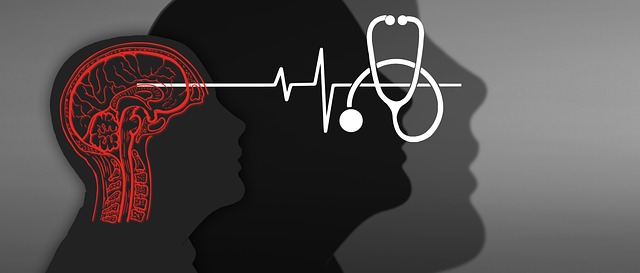Aurora Couples Counseling Therapy offers a revolutionary approach to diagnosing mental illnesses with accuracy. By integrating Emotional Intelligence, Mental Health Awareness, and Mind Over Matter principles, they create a safe space for open dialogue between partners. This collaborative process identifies subtle signs of distress, improving diagnosis nuances. Advanced technologies like data analytics and AI further enhance evaluation accuracy, while specialized training programs equip therapists with crisis intervention skills. Aurora's patient-centered approach prioritizes individual experiences, fostering trust and long-term mental wellness through services like Trauma Support and Stress Reduction.
Mental illness diagnosis accuracy has long been a subject of concern, with many challenges impacting the process. This article delves into strategies aimed at enhancing diagnostic precision, focusing on innovative techniques, professional training, and patient-centric approaches. We explore how Aurora Couples Counseling Therapy serves as a game-changer, offering specialized insights into complex relationships and mental health dynamics. By combining cutting-edge tools with compassionate care, these efforts foster more effective treatment paths for individuals navigating their mental health journeys.
- Understanding the Challenges of Mental Illness Diagnosis
- The Role of Aurora Couples Counseling Therapy in Enhancing Accuracy
- Innovative Techniques and Tools for Better Assessment
- Training and Education: Equipping Professionals for Success
- Patient-Centered Approach: Empowering Individuals in Diagnosis Process
Understanding the Challenges of Mental Illness Diagnosis

Diagnosing mental illnesses accurately can be a complex task due to the multifaceted nature of human psychology and the diverse range of symptoms presented by individuals. Many mental health conditions share similar manifestations, making differentiation challenging for even the most seasoned professionals. This complexity is further exacerbated by the unique experiences and expressions of distress across different populations. For instance, cultural factors significantly influence how individuals perceive and communicate their emotional struggles, potentially leading to misdiagnoses or delayed treatment.
At Aurora Couples Counseling Therapy, we recognize these challenges and strive to enhance mental illness diagnosis accuracy through a comprehensive approach. We integrate principles from Emotional Intelligence to foster deeper understanding between therapists and clients. By promoting Mental Health Awareness, our practitioners encourage open dialogue about symptoms and experiences, ensuring a more nuanced evaluation. Additionally, incorporating Mind Over Matter Principles helps individuals develop coping strategies that enhance self-awareness and communication, ultimately aiding in more precise diagnostic assessments.
The Role of Aurora Couples Counseling Therapy in Enhancing Accuracy

Aurora Couples Counseling Therapy plays a pivotal role in enhancing mental illness diagnosis accuracy. By providing a safe and supportive environment, therapists facilitate open communication between partners, enabling them to share insights about each other’s emotional states and behaviors. This collaborative approach helps identify subtle signs of distress that might otherwise be overlooked, leading to more nuanced diagnoses.
The therapy focuses on not only addressing individual mental health concerns but also fostering healthier relationships. Through tailored strategies like Mental Health Education Programs Design and Self-Care Routine Development for Better Mental Health, couples learn effective communication techniques, conflict resolution skills, and stress management—all crucial elements in supporting one another’s well-being. Such holistic interventions ultimately contribute to more accurate diagnoses by presenting a comprehensive picture of each individual’s mental health landscape.
Innovative Techniques and Tools for Better Assessment

The field of mental health assessment is continually evolving, and innovative techniques are emerging to enhance diagnosis accuracy. Advanced tools like data analytics and artificial intelligence (AI) are now being utilized to streamline the evaluation process, offering more efficient and comprehensive methods for professionals at Aurora Couples Counseling Therapy and beyond. These technologies can analyze vast amounts of patient data, including medical history, symptoms, and behavioral patterns, to provide valuable insights that traditional assessment methods might miss.
By integrating Mental Health Policy Analysis and Advocacy strategies with these new tools, the healthcare system can improve early intervention and treatment planning. For instance, AI algorithms can identify subtle patterns indicative of specific mental health disorders, enabling therapists and counselors to make more precise diagnoses. Additionally, these technologies foster Inner Strength Development and Empathy Building Strategies by providing detailed patient profiles, allowing professionals to tailor their approaches and create personalized treatment plans that address unique psychological needs.
Training and Education: Equipping Professionals for Success

Mental illness diagnosis accuracy can be significantly enhanced through comprehensive training and education programs tailored for professionals. At Aurora Couples Counseling Therapy, we believe in empowering therapists with the latest research and practical skills to ensure precise assessments. These educational initiatives often include advanced crisis intervention guidance, enabling practitioners to handle complex cases effectively. By participating in Stress Management Workshops Organization, mental health professionals can also gain insights into recognizing subtle symptoms and understanding the nuances of various disorders.
Such training goes beyond textbook knowledge, equipping therapists with real-world tools to navigate challenging situations. It involves interactive sessions, case studies, and peer discussions, fostering an environment where learning is continuous and adaptive. Through these educational efforts, professionals become more adept at interpreting client behaviors, differentiating between similar conditions, and tailoring treatments accordingly, ultimately leading to improved diagnosis accuracy.
Patient-Centered Approach: Empowering Individuals in Diagnosis Process

In recent years, a patient-centered approach has emerged as a powerful tool in improving mental illness diagnosis accuracy. This method places individuals at the heart of their healthcare journey, empowering them to actively participate in understanding and managing their mental health. By fostering open communication between patients and healthcare providers, this approach ensures that symptoms, concerns, and personal experiences are thoroughly explored.
At Aurora Couples Counseling Therapy, we embrace this philosophy, offering not only Trauma Support Services but also Mental Wellness Journaling Exercise Guidance and Stress Reduction Methods as part of our comprehensive care. Patients are encouraged to share their unique perspectives, leading to more nuanced diagnoses. This patient-centric strategy not only enhances diagnostic accuracy but also builds trust and promotes long-term mental wellness, ensuring individuals feel heard, understood, and supported throughout their healing process.
Mental illness diagnosis accuracy has seen significant advancements through innovative techniques, enhanced training, and a patient-centered approach. As previously mentioned, Aurora Couples Counseling Therapy plays a pivotal role in this progress by providing comprehensive assessment tools that consider the complex interplay of emotional, behavioral, and relational factors. Moving forward, continuous education and the adoption of cutting-edge methods are essential to ensure professionals are equipped to navigate the nuances of mental health conditions. By empowering individuals with knowledge and actively involving them in the diagnosis process, we can achieve more accurate and effective treatment plans, ultimately improving overall mental wellness outcomes.

